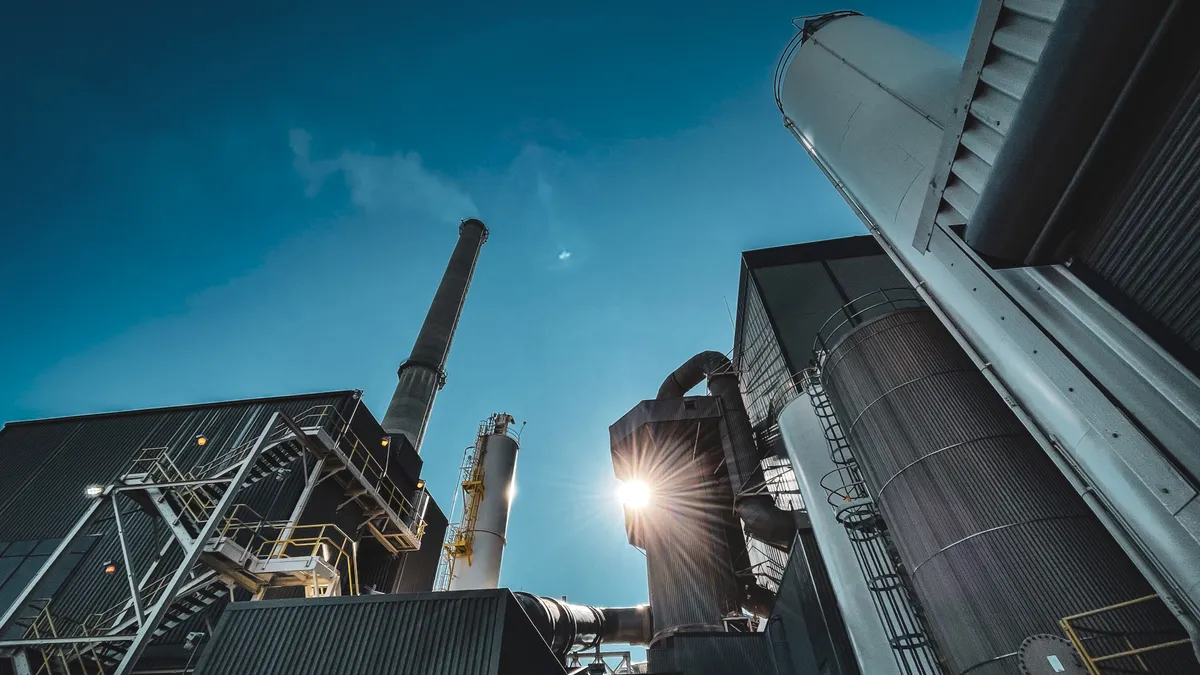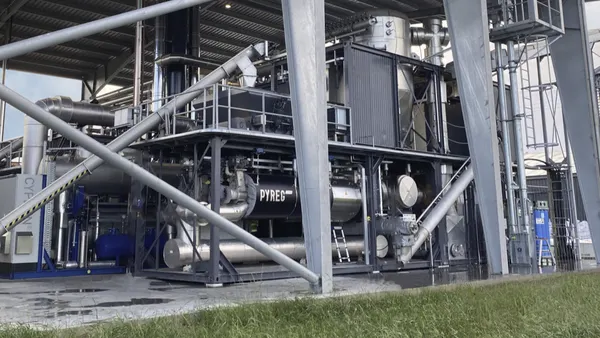Dive Brief:
- A group of companies and local government agencies have launched the Waste-to-Energy Association (WTEA) in an effort to organize messaging related to the 70-plus U.S. facilities using mass burn combustion systems and related technologies.
- The group’s board of directors includes executives from Covanta and WIN Waste Innovations. It also includes leaders from the Miami-Dade County Department of Solid Waste Management in Florida, Lancaster County Solid Waste Management Authority in Pennsylvania and Onondaga County Resource Recovery Agency in New York.
- WTEA is led by President Thomas Hogan and based in Washington, D.C. Hogan is a cofounder and managing director of F/S Capitol Consulting. He has a range of legal and lobbying experience, including previous work for this sector during consideration of a 2009 federal climate bill.
Dive Insight:
The U.S. waste-to-energy sector has seen multiple changes in recent years, amid acquisitions and regulatory developments at different levels of government, but facility operators haven’t had a specific trade association to represent their interests. The WTEA is described as a successor to the Energy Recovery Council, which went dormant in recent years.
Hogan said the combination of evolving climate regulations, ESG investment priorities, zero-waste-to-landfill goals and other recent factors made it the right time to reestablish this group.
"When you have cities, towns, states and the private sector setting those goals it's notable,” he said. "With all of those concepts swirling about, I think the industry recognized that we need a collaborative clubhouse and a big tent for everybody to convene under to work together and try to find solutions.”
This technology saw significant interest and investment in prior decades, due to concerns around energy availability and landfill capacity, but its U.S. growth has been more limited in the years since. Landfill tip fees remain low in certain regions of the country and there has often been local opposition to new or expanded mass burn combustion facilities. Some smaller or older U.S. facilities have closed in recent years due to financial considerations. Meanwhile, development of such facilities is still active in parts of the European Union and China.
The sector still managed 11.8% of U.S. MSW in 2018, according to the latest U.S. EPA data, and it has attracted recent interest from major private equity investors. Covanta, the largest owner and operator of U.S. WTE assets, sold to EQT Infrastructure Partners in 2021. Wheelabrator Technologies, the second-largest player, sold to a Macquarie fund in 2019 and was later combined with other companies to create WIN Waste Innovations.
Both companies have been working to refresh their messaging around environmental effects and benefits by touting their assets as alternatives to methane-generating landfills. WIN Waste now owns three MSW landfills, in addition to running a large portfolio of WTE facilities.
“While demand for essential waste services increases and landfills rapidly fill, waste-to-energy is a solution that recovers and preserves natural resources, diverts waste from landfills and reduces greenhouse gases,” said Allia Saydjari, senior director of sustainability for WIN Waste and WTEA treasurer, in a statement.
A growing number of landfill operators are investing in projects to capture some of these gases, but methane emissions are still high. Meanwhile, some environmental groups say they want to see volumes reduced at landfills as well as at WTE facilities. It remains relatively common to see landfill expansions in some parts of the U.S., though that can differ in areas such as Florida where viable land is limited.
Florida has become a particular focal point for the WTE sector in recent years due to a more favorable regulatory environment. Pasco County is working on a facility expansion, and there has also been discussion of a possible new facility in the Miami area.
WTEA’s public sector membership includes three local government board members representing facilities that have operating contracts with Covanta, including one in Florida.
"Solid waste is a valuable resource, and waste-to-energy allows us to make the most of this resource that would otherwise just sit," said Mike Fernandez, director of Miami-Dade’s waste agency and a WTEA board member, in a statement. “Waste-to-energy is a win-win, and WTEA is leading the charge in educating Americans about the benefits of the WTE method."
Hogan said the group has launched a technical committee and is assessing a range of other possible focus areas. Priorities could include regulatory topics such as emissions standards, renewable fuel or energy credits, and potential benefits from the Inflation Reduction Act, among others. While WTEA is still finalizing its advocacy plans, Hogan said the group could be expected to engage in local, state and federal issues as needed.
As the concept of environmental justice gains traction in more specific government policies, it has also become an expanded focus for opponents. Some advocacy groups have recently met with U.S. EPA staff in an effort to change the agency’s recommended prioritization of energy recovery over landfilling.
When asked how WTEA intended to respond amid such vocal opposition, Hogan said it would be an ongoing effort.
"The only thing that's going to change it is shoe leather. There's no easy way,” he said, citing the value of facility tours and related awareness efforts. "The industry is going to have to make a very concerted, steady drumbeat effort to educate not just the policymakers but the general public. Swaying public opinion is possible, it just requires a lot of effort."











